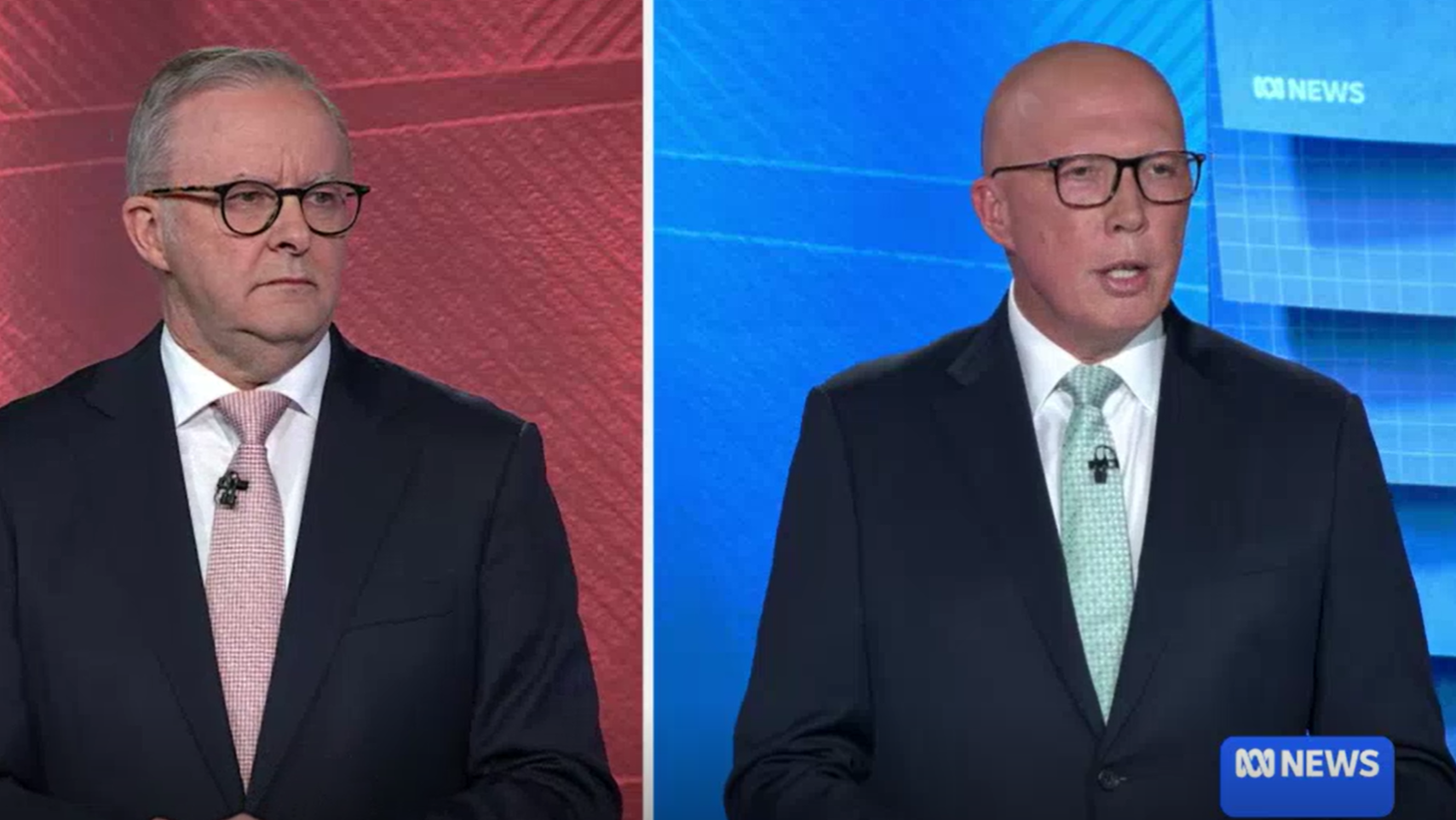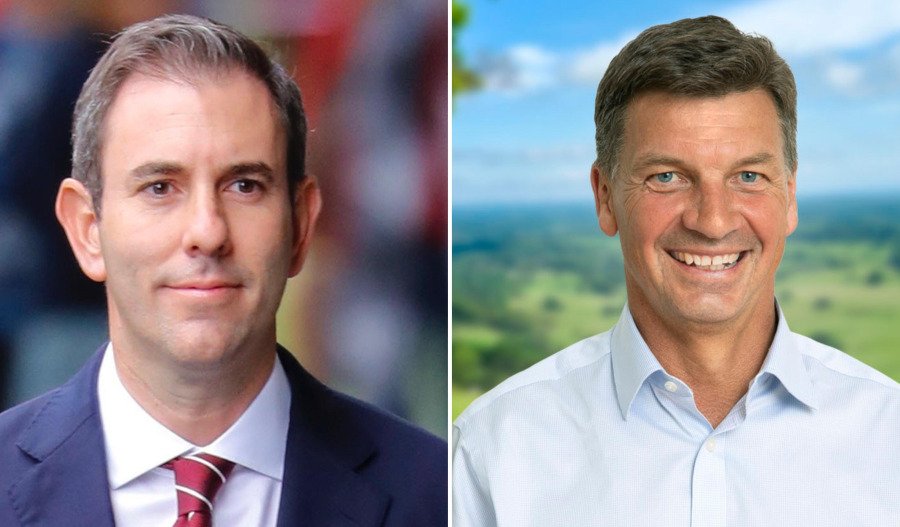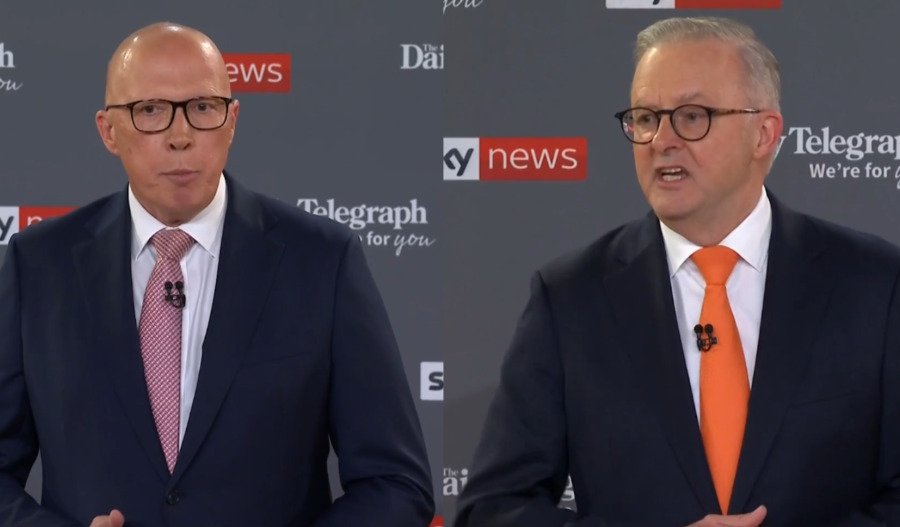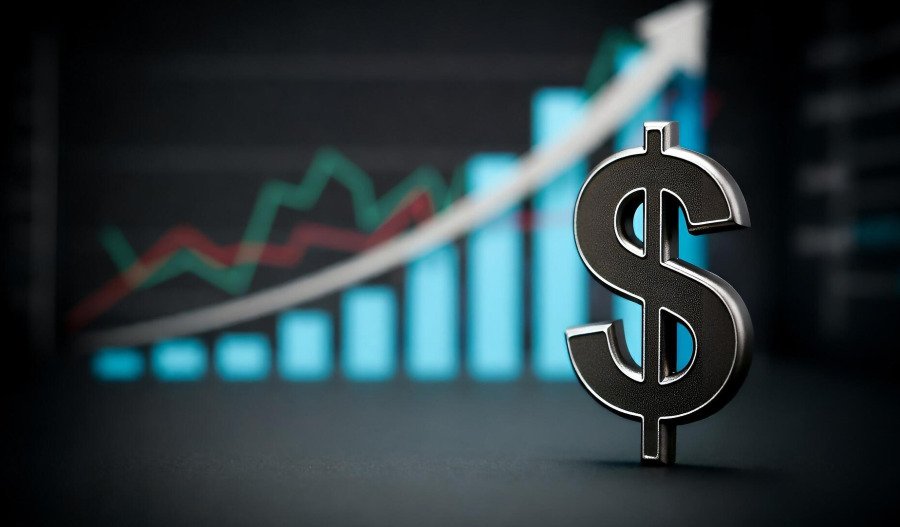Australia's Prime Minister Anthony Albanese and Opposition Leader Peter Dutton clashed overnight on major issues like cost of living, energy policy, and international relations.
The second leaders' debate between Albanese and Dutton took place on Wednesday night, at ABC's Parramatta studios. Moderated by David Speers, the debate was a key moment in the federal election campaign, with just over two weeks until Australians head to the polls.
The Sydney Morning Herald's chief political correspondent David Crowe reported that there was "a clear winner". According to national affairs editor James Massola, Albanese won, "though not by much", while Jacqueline Maley noted that Albanese won "by a whisker".
According to The Guardian Australia's Josh Butler, "neither Albanese nor Dutton smashed the ABC debate."
Ronald Mizen in The Australian Financial Review said: "While the Coalition’s social media accounts were again quick to declare Dutton the winner of the debate, the number of stumbles he had clearly meant that was not the case. In the second debate, Albanese had the edge."
One of the most heated topics was energy policy. Albanese emphasised renewable energy as the cheapest and most sustainable option, while Dutton criticised Labor's handling of power prices and promoted nuclear energy as a solution. However, both leaders dodged specific questions — Albanese avoided committing to a timeline for reducing power bills, and Dutton struggled to clarify his stance on climate change.
International relations have also sparked debate. Dutton admitted to making a mistake regarding claims about Russian military activity in Indonesia, which Albanese used to question his credibility. Meanwhile, Albanese faced criticism for not providing clear answers about Australia's diplomatic efforts in Indonesia and China. Both leaders attempted to position themselves as strong on defence and foreign policy, but neither emerged unscathed.
Poll results following the debate showed mixed reactions. While some viewers felt Albanese had a stronger grasp of international issues, others believed Dutton was more effective at addressing domestic concerns like the economy. The debate highlighted the challenges both leaders face convincing undecided voters, with each needing to refine their message in the coming weeks.
Looking ahead, there are two more debates scheduled before the 3 May election. These will provide further opportunities for Albanese and Dutton to sway public opinion and address lingering questions. Early voting begins soon, so the pressure is on both leaders to solidify their platforms and connect with voters. The campaign trail will likely intensify as the election date approaches.
The third debate will air on Channel Nine on Tuesday 22 April at 7.30pm AEST. 7NEWSwill host the fourth and final leaders' debate on 27 April at 8pm AEST.
Related content
- Second leaders’ debate is a tame affair befitting a ‘deeply uninspiring’ campaign
- Peter Dutton admits second mistake, and other takeaways from ABC Leaders Debate
- Six key moments that gave Albanese the edge in the debate
- Dutton looks shaky as he fights Albanese to a draw at best
- AS IT HAPPENED: Anthony Albanese and Peter Dutton trade barbs on Trump, Indonesia and nuclear during second leaders' debate
- Dutton and Albanese dodge difficult questions in second leaders debate
- Federal election 2025: Anthony Albanese and Peter Dutton face off in second leaders debate



